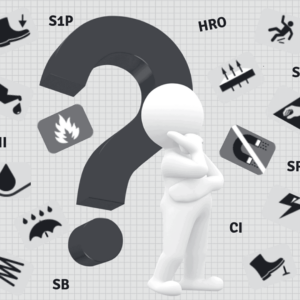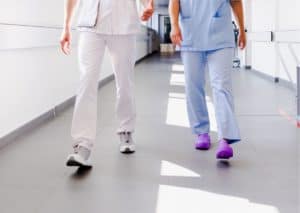Washable nursing shoes and theatre clogs, which are the most hygienic option for hospital staff, are generally made from synthetic materials. Durable nursing shoes that can be washed regularly and rinsed easily between washes.
In order to clean and sterilise nursing shoes and clogs, three methods are available:
- Machine Wash
- Autoclave Machine
- Chemical or UV Sterilisation
Machine Wash
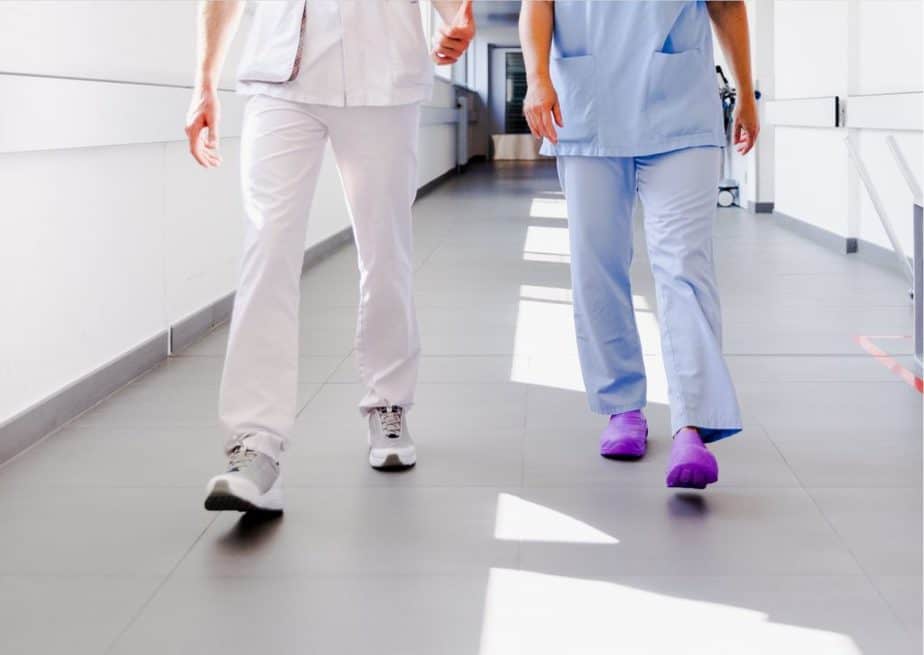
This is the most widely used method. We have a variety of machine-washable shoes at PLS Medical. They are machine washable at 30°C to 50°C, depending on the style.
EVA (ethylene vinyl acetate) is one of the most common materials used to make washable nursing shoes. EVA is the copolymer of ethylene and vinyl acetate. It is a material that is extremely elastic and can be sintered to make it porous. The EVA material is tough as rubber, yet extremely elastic.
We offer washable nursing shoes that are antistatic and anti-slip as well. We offer a variety of EVA nursing shoes that can be washed at 30°C.
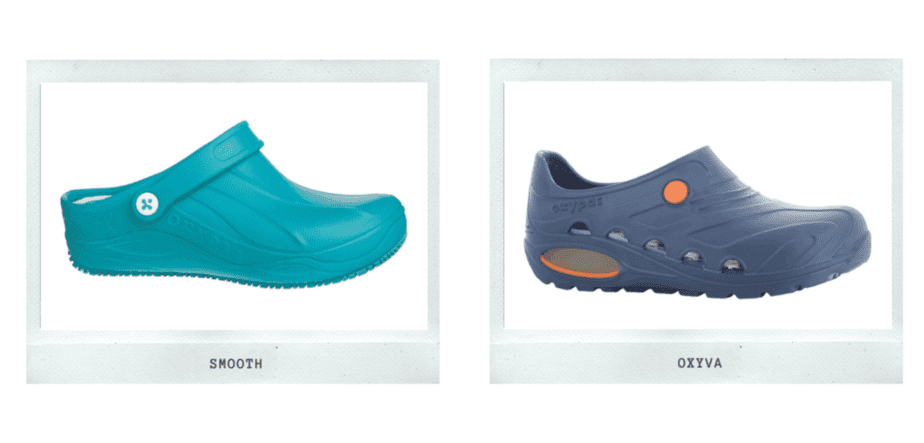
‘Smooth’ is an open-heeled hospital clog with pivoted straps for flexibility. You can view the ‘Smooth’ here. We also have the ‘Zero’, an EVA clog with adjustable straps that is also machine washable at 40°C you can view the ‘Zero’ here.
Our most popular closed-heel, washable EVA theatre shoes are the ‘Oxyva’ and ‘Dynamic’. With built-in postural support and shock absorption to increase wearer comfort. Having integrated postural support helps ease plantar fasciitis symptoms. It can also alleviate the discomfort from other common complaints. You can view the ‘Oxyva’ here or the ‘Dynamic’ here.
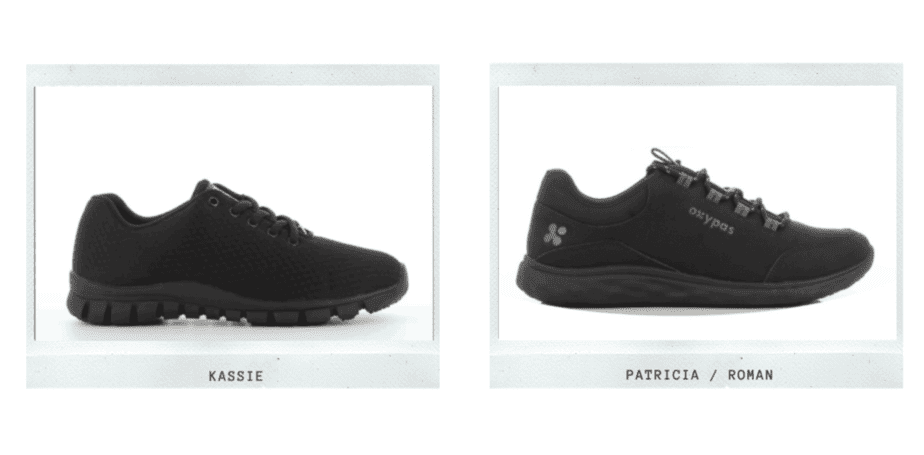
New styles of washable shoes are made of mesh and synthetic materials with high-tech features. The Kassie is a lightweight and breathable unisex shoe that is machine washable at 30°C. You can view the Kassie here, the Patricia here, or the Roman here.
Autoclave Machine
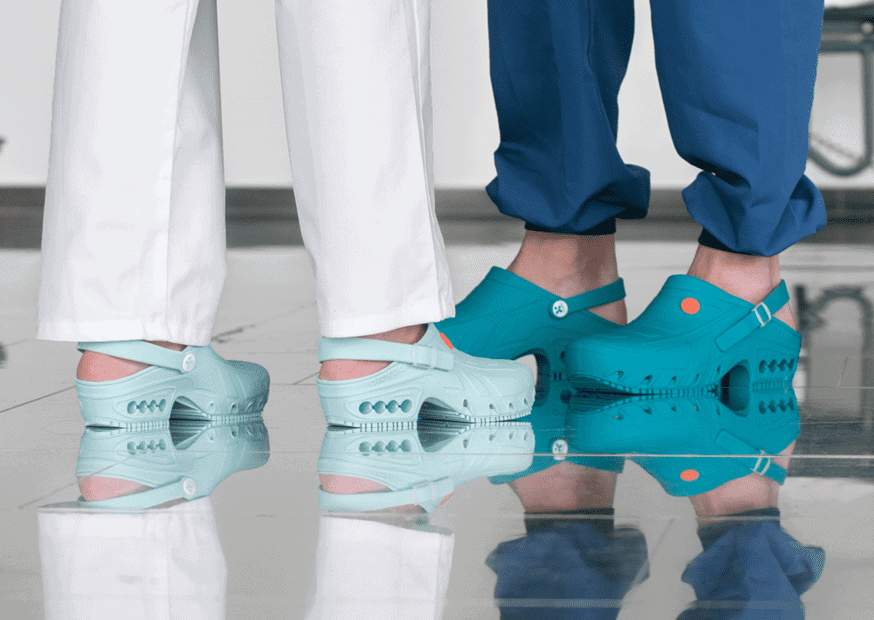
Shoes and clogs that can be autoclaved are typically made of TPR (thermoplastic rubber). This will allow them to pass through the autoclave machine at 135°C. TPR is a mix of polymers (usually plastic and rubber). Thermoplastic rubber shoes show advantages typical of both rubbery materials and plastic materials. Therefore, the shoes can handle the high temperatures of the autoclave process while remaining comfortable.
Our most-popular Autoclavable nursing shoe is the ‘Oxyclog’ from Safety Jogger Professional (Formerly known as Oxypas). Theatre clogs with an adjustable strap provide the wearer with a variety of options according to conditions. In order to improve wearer comfort, this autoclavable theatre clog has shock absorption built-in. You can view the Oxyclog Autoclavable Nursing Shoe here.
In general, we recommend that if high temperatures are not required, it may not be the most appropriate option. Because EVA is softer than TPR, it is more comfortable to wear.
Chemical or UV Sterilisation
Different hospitals have different sterilisation techniques and sterile services requirements. Chemical or ultraviolet sterilisation may be preferred by some. EVA and TRP nursing shoes can both be sterilised by chemical or UV light. Therefore, all of our EVA and TPR nurses’ clogs and shoes can be used for this kind of decontamination.
Would you like to learn more about professional footwear before making a decision? Here are some blog articles you may find helpful:
What are Anti-static and ESD? Click here to read our ‘Antistatic and ESD Explained’ blog.
What are slip-resistance standards? Click here to read our ‘Slips, Trips and Falls – Slip Resistance Explained’ blog.
What are slip-resistance standards? Click here to read our ‘Safety and Occupational Footwear Explained’ blog.
Looking for student placement shoes? Click here to read our ‘Best Shoes for Student Nursing Placement’ blog.
Do you have Plantar Fasciitis or other common aches and pains? Click here to read our ‘The Best Shoes for Plantar Fasciitis’ blog.
Do you have sore or tired feet? Click here to read our ‘5 Top Tips for Happy Healthy Feet’ blog.
What are the best nursing shoes for you? Click here to read our ‘The Best Nursing Shoes’ blog.

